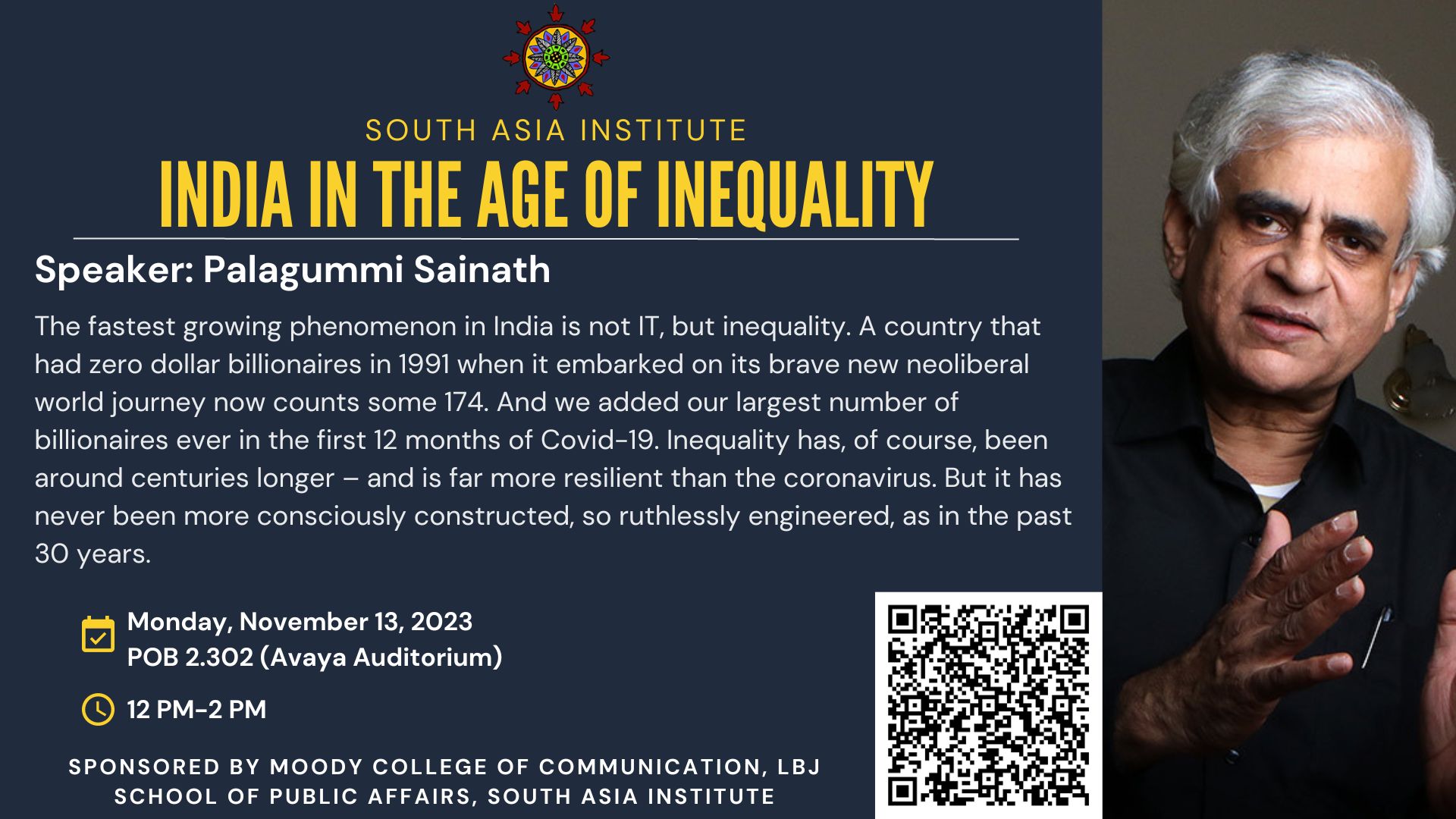
The fastest growing phenomenon in India is not IT, but inequality. It’s a pandemic on its own, feeding heavily into Covid-19 and other deadly crises. A country that had zero dollar billionaires in 1991 when it embarked on its brave new neoliberal world journey now counts some 174. That makes India No. 3 in the nation-wise Forbes Billionaires count – while ranking 132 in Human Development. And we added our largest number of billionaires ever in the first 12 months of Covid-19 and its accompanying lockdowns. Inequality has, of course, been around centuries longer – and is far more resilient than the coronavirus. But it has never been more consciously constructed, so ruthlessly engineered, as in the past 30 years. Through economic and other policies that bring no vaccines to it, only steroids.
About the Speaker
In a 43-year career as a journalist, Sainath — the former Rural Editor of the Hindu -- has won over 60 global and national awards for his reporting (and turned down several, including the Padma Bhushan because, in his view, journalists should not be receiving awards from governments they cover and critique). He is the winner of the Ramon Magsaysay Award in 2007, for Journalism Literature and Creative Communications Arts. He was the first reporter in the world to win Amnesty International’s Global Human Rights Journalism Prize in its inaugural year in 2000. He was also the first Indian reporter to win the European Commission’s Lorenzo Natali Prize for human rights journalism in 1995. Apart from the 40 plus print media awards, two documentary films on his work, ‘Nero’s Guests’ and A Tribe of his Own,’ have between them picked up over 20 awards across the globe.

